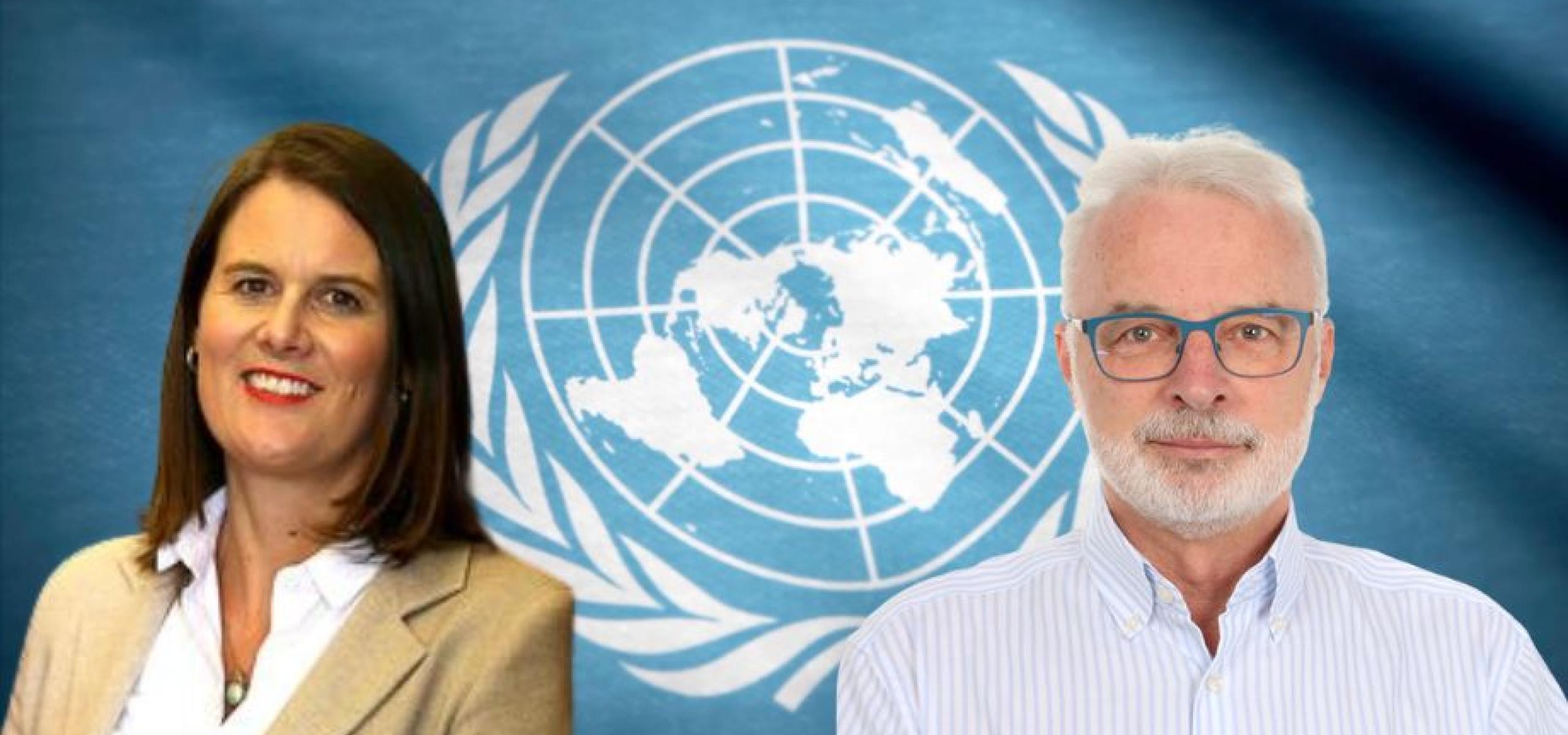
Dr Alice Edwards and Professor Robert McCorquodale
Women make up half of the world’s population. We have a right to live free from torture and violence.
When Dr Alice Edwards (PhD ‘09) and Professor Robert McCorquodale were recently appointed to the United Nations Human Rights Council (UNHRC), they made history as the first Australians to assume their roles simultaneously.
In July 2022, the UNHRC appointed Dr Edwards as the Special Rapporteur on Torture and Other Inhuman and Degrading Treatment or Punishment (SRT) and Professor McCorquodale as a member of the Working Group on Business and Human Rights (WGBHR).
Dr Edwards completed her PhD in international law under the supervision of Professor Hilary Charlesworth AM FASSA FAAL at ANU in 2009. Professor McCorquodale formerly served as head of ANU Law School and treasurer of the Australia and New Zealand Society of International Law (ANZSIL) in the 1990s.
Dr Edwards is the first woman appointed as the SRT, the UN’s second oldest independent expert mandate. This role is a core part of the UN’s special procedures on human rights, with responsibilities of engagement with states and civil society on issues of torture and foregrounding the voices of victims.
“Being the first woman to be the UN Special Rapporteur on Torture is symbolically and substantively significant. Women make up half of the world’s population. We have a right to live free from torture and violence,” she said.
“Women’s rights will always be central to what I do.”
The position involves carrying out fact-finding country visits, studying questions of torture, and transmitting urgent appeals on behalf of persons at imminent risk of such cruelty and inhuman treatment.
Dr Edwards brings substantial expertise to the role, having been the Head of the Secretariat of the Convention Against Torture Initiative, which was effective in encouraging more states to ratify and implement the Convention Against Torture and Other Inhuman and Degrading Treatment or Punishment (CAT). She brings specific expertise on the gendered aspects of torture, with extensive work and publications in this and related areas.
She worked for more than 10 years with the Office of the UN High Commissioner for Refugees, as well as holding academic posts, including at the Universities of Oxford, Nottingham and her home state of Tasmania, and working with civil society.
Professor McCorquodale is one of five members of the WGBHR from around the world, and representing the UN region of Western Europe and Others (Western Europe, Australia, Canada, New Zealand and the US).
“I am humbled and honoured by this appointment. It is a privilege and a challenge to be part of a small international expert group with responsibility to establish some global guidance for corporations, governments and civil society in the area of corporate responsibility for human rights and environmental impacts,” he said.
“It is particularly important at a time of rapid developments in legal accountability - by legislation and in courts - and of consumer awareness of these adverse impacts. I hope to bring my long experience of working with governments, corporations and civil society around the world, and in a range of different situations, to provide appropriate and effective guidance and direction.“
The WGBHR has the mandate to provide guidance, consider complaints, undertake country visits and issue reports in the rapidly developing area of corporate accountability for adverse human rights impacts.
Professor McCorquodale has been working in this field for three decades and brings considerable expertise in working with civil society, corporations and governments.
An Emeritus Professor at the University of Nottingham and previously at the University of Cambridge, he was the director of the British Institute of International and Comparative Law and an accomplished barrister, consultant and mediator.